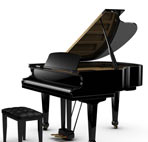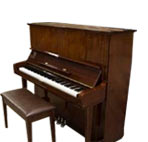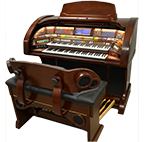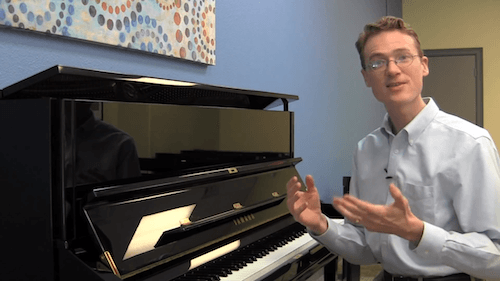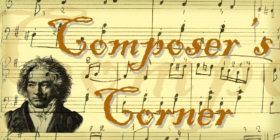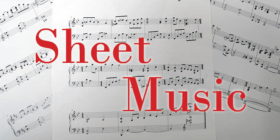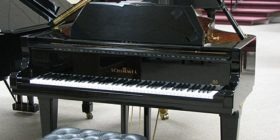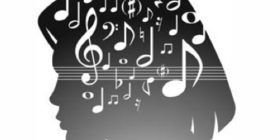Why begin music training with the piano? Here are my top ten reasons to start with a keyboard instrument:
1. Ease of Playing
How do you get sound from a piano? You press a piano key. It doesn’t get simpler than that. Because pianos are so simple to play, children can begin their music studies earlier, as soon as their hands have the size and strength to use a keyboard.
2. Learning to Read Music
The piano is a great instrument to help students learn to read music. Because of the way a keyboard is laid out, it is easier to see the relationships between pitches in both melodies and chords and the way they look written out on the staff. Also, because the piano is so simple to play, a student can focus on learning to read music rather than struggling with difficult technique.
3. Sense of Pitch
A well-tuned piano always makes the right note when you press the key. This develops a keen sense of pitch in the young piano student. Other instruments require good breath control or exact finger placement to make the right note, which can be very challenging for a beginner who might not even have a good sense of pitch yet!
4. Tuning and Maintenance
Most pianos only need to be tuned once or twice a year, and electric keyboards never need to be tuned. This is different from most other instruments, some of which need to be tuned every time they’re taken out of their case. Pianos are very sturdy instruments. They don’t need new strings every year or two, like a violin or guitar. Most can go for decades without needing any parts repaired or replaced. They’re basically worry-free.
5. Sounds Good from the Start
Many instruments, such as the violin or the flute, require a high level of skill to produce a good tone. It can take years before a student has the muscle control to make their instrument really sound good. With a piano, you press a key and a note comes out, and it sounds great. Right on pitch every time.
6. Wide Range of Pitch
The piano has a huge range of pitches, the lowest notes lower and the highest notes higher than most orchestral instruments. Because of this, music for the piano is written on two staves, both the treble and the bass clef. Learning how to read both of these clefs will allow students to go on to either a bass or treble instrument with equal ease.
7. Melody and Accompaniment
The piano is one of the few instruments that allows you to play both melody and accompaniment. Early beginners can start out playing simple melodies, but soon they learn to add chords and other accompaniment patterns. This helps develop a better sense of music theory than is possible with instruments that can only play one note at a time.
8. Great for Learning Music Theory
Keyboard layout is very straightforward. Low notes are to the left, higher notes to the right. There are white keys and black keys that make it easy to learn about sharps, flats, and key signatures. Understanding how chords are built is easy when the spacing between notes on the keyboard so directly correlates to the spacing between notes on the written staff.
9. Dynamic Range
The piano was originally called the “pianoforte” or “soft-loud” in Italian. It was designed as an instrument that could play very quietly but could also be played loud. The piano is soft enough to accompany voices or other instruments, but it can also be a dynamic and dramatic solo instrument. High-end keyboards will also have dynamic response, meaning that a softer touch on a key will make a quieter tone. When they begin with the piano, music students have a great opportunity to learn how to use the contrast between loud and soft to lend emotion and excitement to their performances.
10. A Great Foundation
The piano is a great place to start, whether a music student chooses to study other instruments or stay with the piano. Because the piano is so versatile, students can spend many rewarding years studying it and continue to grow in their ability to play more complex pieces with beauty and skill. They can also bring their sense of pitch, their understanding of music theory, and all the other musical abilities they’ve developed with the piano to their study of a new instrument.
-Article by Joseph Hoffman at www.hoffmanacademy.com


